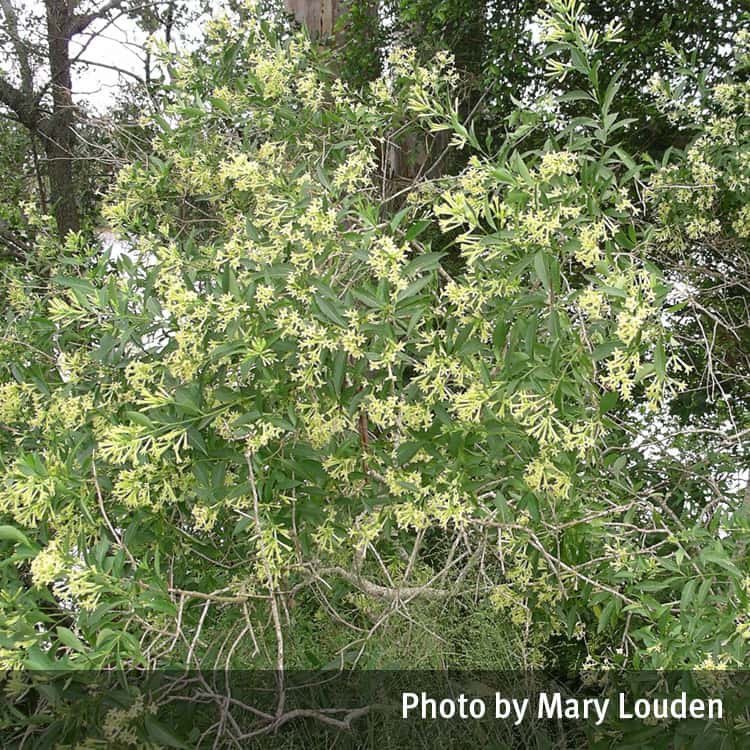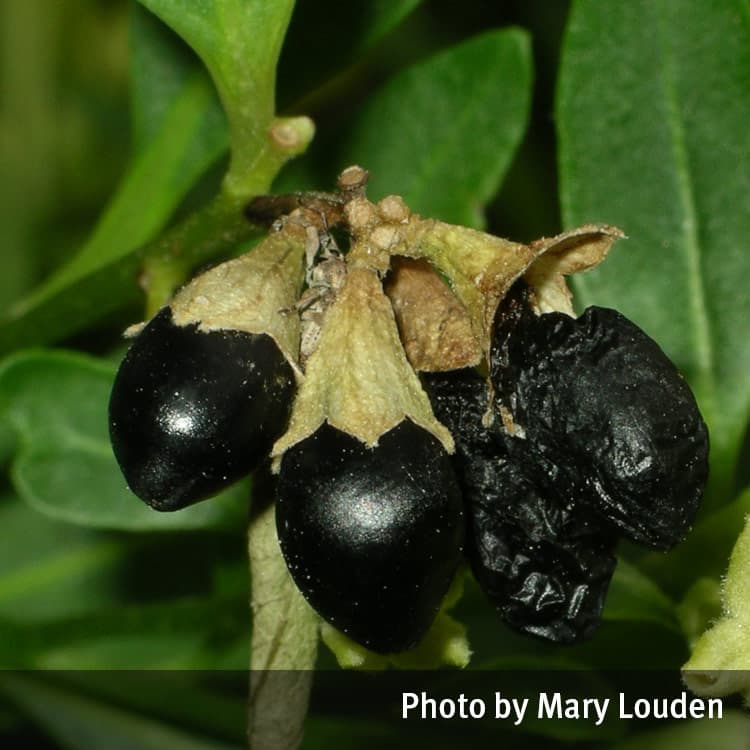Warning
Seek urgent medical attention for all ingestions.
Description
A single or multi-stemmed, weedy shrub up to 2m tall, sometimes to 5m, with extensive yellow roots. It has been cultivated as an ornamental in the past and is a weed in some areas.
The flowers are tubular, 2-2.5cm long with five star shaped lobes, greenish-yellow and grouped in clusters at the ends of the stems.
The leaves are alternate, soft dark green, 2-10.5cm long and 0.5-2.4cm wide. The leaves have a strong unpleasant odour when crushed.
Toxicity
Symptoms
All parts of the plant are toxic, especially the fruit, and can cause elevated temperature, rapid pulse, excess salivation and gastritis.
Images


Details
Common name: Green cestrum
Botanical name: Cestrum parqui
Other common names: Green poisonberry, Chilean cestrum, Iodine bush, Willow-leaved jessamine
Family: Solanaceae
General description: A single or multi-stemmed, weedy shrub up to 2m tall, sometimes to 5m, with extensive yellow roots. It has been cultivated as an ornamental in the past and is a weed in some areas.
Flowers: The flowers are tubular, 2-2.5cm long with five star shaped lobes, greenish-yellow and grouped in clusters at the ends of the stems.
Leaves: The leaves are alternate, soft dark green, 2-10.5cm long and 0.5-2.4cm wide. The leaves have a strong unpleasant odour when crushed.
Fruit/Berries: The fruit are succulent shiny black berries, oval or teardrop shaped and about 1.0-1.5cm long. When crushed, the berries will stain the skin an iodine- brown.
Other: The sap is clear.